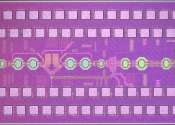'Impossible' millimeter wave sensor has wide potential
Researchers at the University of California, Davis, have developed a proof-of-concept sensor that may usher in a new era for millimeter wave radars. In fact, they call its design a "mission impossible" made possible.
Oct 2, 2023
0
144









